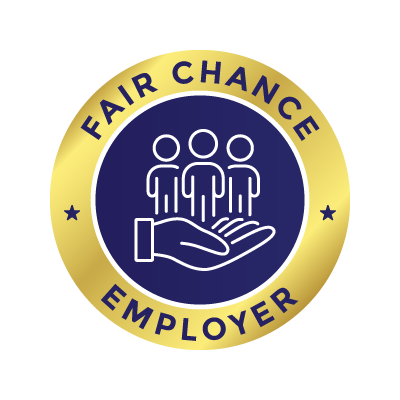In November 2017, Tarra Simmons appeared before the Washington State Supreme Court with friend, mentor, and Georgetown law professor Shon Hopwood sitting beside her.
Unlike Tarra’s past interactions with the justice system, she was not there to be sentenced to jail or prison time. Instead, Tarra and Shon were appealing a decision made by the Washington State Bar Association to not allow Tarra to sit for the bar exam because of her criminal record.
Tarra spent 15 years in and out of jail before deciding she wanted to be on the other side of the process and go to law school to advocate for justice-involved people across Washington. Tarra overcame traumatic experiences from her childhood and substance use disorder to become the first lawmaker with a criminal record to be a representative in Washington’s 23rd Legislative District.
about tarra
Tarra first got involved in the justice system when she was only 11 years old. She was arrested for stealing food because her father sold the family’s food stamps. In the years following that incident, Tarra found herself caught in the revolving door of the justice system, going to jail and then being released with nowhere to go. When Tarra got pregnant and had her first child, she decided it was time to change. She returned to school to create a better future for herself and her son. Tarra was the first person in her family to graduate from high school and attend college where she got her Bachelor’s Degree in Nursing.
Unfortunately, after a period of being crime-free, Tarra relapsed, re-entered the justice system and was sentenced to prison. While incarcerated, Tarra met people for the first time who were in recovery and had endured traumatic experiences similar to her own. Interactions with other incarcerated people, along with the support of volunteer programs within the prison, would help Tarra break free from the shame and guilt she felt her whole life.
Upon her release, Tarra worked hard to provide for her family but struggled to make ends meet. Even though she had both a degree and experience in nursing, the only job she could get was in fast food, and a good chunk of her paycheck was garnished to pay court fines and fees. Despite her efforts to move forward from her involvement with the justice system, Tarra felt suffocated by the stigma that her criminal record caused in her daily life. She knew that she was not alone in this feeling and that this was the reality for many formerly incarcerated people.
Experiencing the barriers that a criminal record causes first-hand provided Tarra with an interesting perspective on the justice system. She knew she wanted to be a voice for people who struggled after their reentry into society, and specifically advocate for housing and employment opportunities, as well as a reduction in the burden of financial obligations a formerly incarcerated person faces upon release.
Tarra recalled law students who volunteered at her prison and suggested that she pursue a law degree. But she questioned herself and whether she could be a practicing attorney with a criminal record. She was reminded of a book she read while incarcerated: Law Man: My Story of Robbing Banks, Winning Supreme Court Cases, and Finding Redemption — the memoir of Shon Hopwood, a bank robber turned attorney in her home state of Washington. She decided to meet up with Shon, and with his support, Tarra decided to apply to law school.
Tarra went from being in and out of jail for most of her life to being a law student in a little over a year. While in law school, she founded a nonprofit organization, interned at different legal agencies, served on 2 statewide commission boards, and graduated Magna Cum Laude with multiple recognitions. Tarra was one of 30 people to receive the Skadden Fellowship in 2017 and was the first formerly incarcerated person to be awarded this honor.

But when it came time for her to take the bar exam, the Washington State Bar Association would not allow Tarra to sit for the exam because of her felony conviction. But she was not going to give up. Tarra and Shon — with the backing of the ACLU of Washington and over 100 letters of support — appealed the Washington State Bar Association’s decision. The Washington State Supreme Court unanimously agreed to let Tarra take the bar exam, which she passed in 2018, on her first try.
Tarra describes this moment as “the most healing form of justice I’ve ever gotten from a system.” She went on to say that, throughout her life, the justice system treated her poorly. “[The system] didn’t understand me, they didn’t hear me, they didn’t see my heart.” Being heard, supported, and seen for who she is gave Tarra the confidence to run for office in 2020.
Today, Tarra is a Washington State Representative who continues to advocate for justice-involved people across Washington and help pass criminal justice-related legislation. Outside of her work and advocacy, she is the proud mother to 2 boys and recently became a grandmother. She is proud that she has been able to give her sons a better life than she had growing up. Tarra is currently working on restorative justice legislation that benefits justice-involved people, as well as victims. Additionally, she is advocating for the implementation of more humane and trauma-informed practices in the prison system to make prisons a place where incarcerated individuals can heal and recover. Finally, she is looking forward to expanding the cases that are eligible for the record-sealing process in Washington.
Tarra had her record vacated — a form of record sealing — in 2023. While she remains vocal about her past involvement with the justice system, she had her record vacated because of the barriers it caused in many areas of her life, like volunteering, passing background checks, and traveling freely. Restoring her rights has helped Tarra feel like she belongs. It has also opened up more opportunities to heal and help others.
Tarra’s advice to people earlier on in their journey is to find belonging and embrace their community. As she describes it, “The human experience is wanting to belong somewhere”. Whether it be finding people who have similar lived experiences to your own, or finding someone who shares your values, Tarra says building these relationships is essential for when times get tough. Tarra also attributes her resilience, success, and ability to overcome challenges in her life to forgiving and loving herself.
What are you waiting for?
It’s time to leave the past behind. Use our tool to quickly check if you have records that are eligible for expungement today!
Find out if you’re eligible in under 3 minutes.
This story is part of our #1in3 campaign, a project to end the stigma and raise awareness of how common it is to have a criminal record.
1 in 3 Americans has a criminal record, which is a lot more common than people think. No one expects to be involved in the justice system, but it can happen to anyone. People of all ages, backgrounds, genders, and income-levels are involved in the justice system. Their pathways vary, but the barriers of a record affect them all. Our hope is that by sharing their portraits and telling their stories, we can change the way people think about people with records and appreciate them for all they have overcome.




